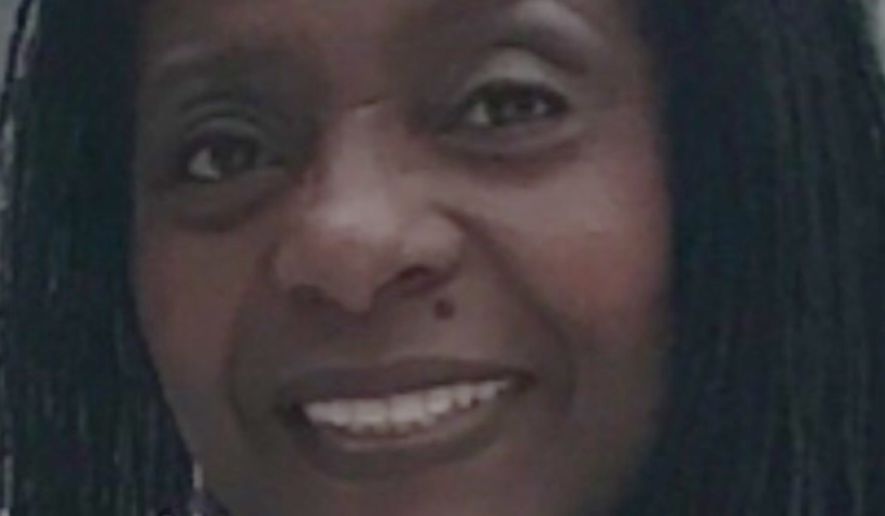THE BIG TALK
An occasional interview series with Americans who are challenging the status quo.
It would be easy for Louisiana Dairy Queen customers to assume Susan Greene Woodfin is just another Black woman earning hourly wages, but the woman serving up Blizzards is the owner of the location.
Things might be different if Ms. Woodfin hadn’t been raised in Japan, married for decades to a White man in the Deep South and the mother of four successful adults.
Ms. Woodfin is aware of discrimination and expertly hides some bitterness based on personal experience, but her myriad successes and unflappable demeanor belie the perceived status quo about race in America, which often paints an unremittingly bleak picture. Just don’t tell her there’s anything remarkable about her odyssey.
“I absolutely do not see myself as a role model,” the 61-year-old businesswoman told The Washington Times. “I don’t feel that accomplished. There are other things I want. Maybe I feel like it’s not enough.”
The feeling is no doubt familiar to successful entrepreneurs, but few have traveled such an unusual road.
Like those of many Black Americans, Ms. Woodfin’s story begins in Mississippi. She was born to unmarried people and adopted by her uncle, who was stationed at Yokota Air Base some 20 miles from Tokyo. Her de facto mother became his wife, Kimiko Tominaga Spikes.
Ms. Woodfin said she was raised in an idyllic setting. Although she stood out as a Black girl, her orbit had many mixed-race children and the topic simply didn’t come up.
“It was very unique, very exotic, looking back,” she said. “I grew up in a diverse family. I remember some culture shock when I returned.”
Ms. Woodfin was in school when the U.S. government, looking to relocate thousands of “boat people” fleeing the communist invasion of South Vietnam, put many Vietnamese families in the New Orleans area. The relocation led to friction in some places along the Gulf Coast, where local fishermen resented the influx of competition.
“But I didn’t think anything of it. I had Japanese ‘cousins’ and knew all these Asian people and I can remember running up to them like, ‘Hey,’” Ms. Woodfin said. “There was a little bit of a drawing back, sort of ‘Who are you?’ But it all seemed normal to me.”
Ms. Woodfin and her husband, Richard, now a coffee-tasting expert with Folgers, married young. They were in love, and the fact she was Black and he was White didn’t enter their calculations.
“We were a bit oblivious,” she said. “I guess we didn’t think about it enough.”
But some around them did their own “thinking,” and Ms. Woodfin suffered serial indignities. Advertised apartments vanished from the market when the young couple inquired about renting them, and jobs that people told her husband were available were mysteriously filled when he sent his wife to apply for them.
“It’s exhausting being a Black person,” she said. “You are always on your guard, hypervigilant. And that’s with Black people and White people.”
Indeed, Ms. Woodfin sees the problems that bedevil Americans on race everywhere, yet she maintains a positive outlook. She thinks the idea that young Black people lack role models is a White myth.
“Absolutely false,” she declared when asked whether that was a problem. “The problem is not that they don’t see people to look up to. It’s that they don’t think they can aspire to do that. People don’t want to fight, so they quit.”
On the other hand, she is astounded by Madison Avenue’s embrace of the interracial couple, increasingly the standard in television advertising. She said that will erase a picture always presented to her of a “White world.”
It also makes sense to her as an employer looking to hire. Ms. Woodfin’s Dairy Queen is not far from the New Orleans Saints headquarters in Metairie, where business is slowly returning after coronavirus restrictions dealt a heavy blow.
“White people see you differently,” she said. “There is some narrative about how you think about these things, a certain side of things you believe in. Some of that is not racism, though; it’s what you’re used to and what makes your business better. People always go, ‘That’s racist.’ But it’s not always. People tend to gravitate toward their own.”
The recent flashpoints of race relations, particularly the deaths of Black Americans in encounters with police such as George Floyd and Breonna Taylor, worry her. The deaths demonstrated a brutal undercurrent in race relations. Although she understands the sometimes violent blowback, it’s not something she favors.
“Poking the bear is not the right way,” she said.
But neither is the strident tribalism she sees erupting. The notion that people are all one thing or all another thing makes no sense to her.
“As long as I have to check some box, they aren’t thinking we’re all Americans,” she said. “Politics is a cult these days. I’m a Republican at heart, I just know it. But not 100%. I’m a Democrat at heart, I know. But not 100%.”
• James Varney can be reached at jvarney@washingtontimes.com.




Please read our comment policy before commenting.